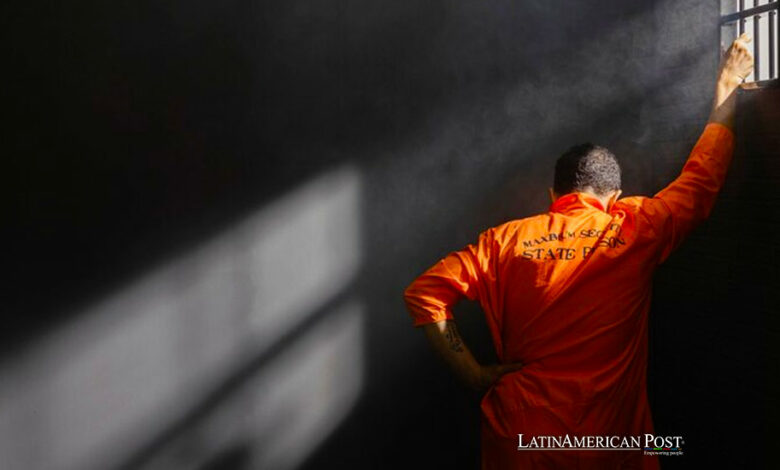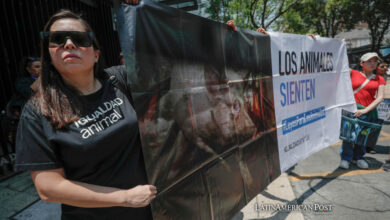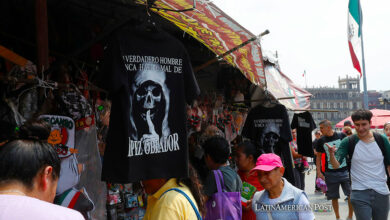Nicaragua to Launch Controversial Prisoner Release Program

Nicaragua announces the release of 1,500 prisoners on a date resonant with opposition protests, stirring debate on justice and political maneuvering. This act echoes broader regional tensions and raises questions about the intersection of criminal justice and political strategy in Latin America.
On April 19, Vice President Rosario Murillo in Managua announced that Nicaragua plans to release 1,500 convicted prisoners into a family cohabitation regime. This date holds historical weight, marking the anniversary of the 2018 anti-government protests that challenged President Daniel Ortega’s government and resulted in tragic losses. This decision intertwines with a complex tapestry of political, social, and historical narratives that resonate within Nicaragua and across Latin America.
Protests Ignite Demand for Change
The 2018 protests in Nicaragua, initially sparked by controversial social security reforms, escalated into widespread demands for Ortega’s resignation, met with lethal force. The clash led to a death toll disputed between Nicaraguan organizations and Ortega, with figures ranging from 300 to 684. The protests are viewed by Ortega’s government as an attempted coup, framing the upcoming prisoner release as a significant political gesture.
Murillo’s announcement, made through official channels, states that the release will occur at “La Modelo” in Tipitapa, Nicaragua’s largest prison, and other facilities, as part of a national initiative. The beneficiaries, both men and women, are promised a chance to rebuild their lives and contribute positively to their families and society.
The vice president’s remarks underscore a narrative of restored mobility and peace in Nicaragua, juxtaposed against the turbulent events 2018. She dismisses the opposition, referring to them as “tranquistas” who are no longer in the country, implying a return to normalcy and stability under the current government.
This move is part of a broader trend in Nicaragua, where thousands of ordinary prisoners have been sent home in recent years, often around significant holidays or commemorations. This practice, while ostensibly humanitarian, has attracted criticism. Feminist organizations like the Red de Mujeres contra la Violencia argue that these releases have led to an increase in crime, particularly femicides, challenging the notion that these actions solely serve the public good.
Regional Implications and Debates
The timing and nature of these releases have broader implications in the Latin American context, where issues of justice, human rights, and political power interplay. Across the region, governments face scrutiny over how they handle prisoner releases, with concerns about transparency, justice, and potential political motivations. Similar actions in countries like Venezuela, Brazil, and Colombia have sparked debates about the balance between rehabilitation, public safety, and political expediency.
In Nicaragua, the use of prisoner releases as a political tool is nuanced by the country’s volatile history of civil unrest and governmental repression. The symbolic date of the release aligns with a significant moment of opposition to Ortega’s regime, suggesting an attempt to overwrite painful memories with a narrative of compassion and reconciliation.
Critically, this action raises questions about the criteria for selecting prisoners for release and the transparency of the process. The Nicaraguan government’s approach reflects a broader pattern observed in some Latin American countries, where executive decisions often bypass judicial systems, leading to concerns about the erosion of checks and balances in democratic institutions.
Nicaragua’s prisoner releases have implications beyond national borders, reflecting regional dynamics of power, justice, and human rights. As Latin America grapples with its complex history of political turmoil and strives for democratic integrity, such actions serve as focal points for discussion and debate.
Moreover, these releases’ timing and selection criteria have significant societal impacts. While some view them as opportunities for reintegration and rehabilitation, others see potential risks, mainly when the releases include individuals convicted of serious crimes.
Emblematic Debate
The debate over Nicaragua’s prisoner release policy is emblematic of broader discussions in Latin America about the role of government in criminal justice, the balance between mercy and accountability, and the impact of such decisions on societal safety and political perception.
Also read: Defending Privacy: Challenging Nicaragua’s Draconian Telecom Laws
Nicaragua’s plan to release prisoners on a historically charged date encapsulates the intricate interplay of Latin American justice, politics, and history. It underscores the tensions between government actions and public perception, the quest for stability versus the need for accountability, and the ongoing challenge of reconciling the past with the present. As such, it serves as a poignant case study of the delicate balance between forgiveness and justice in the shadow of political legacy and societal well-being.




